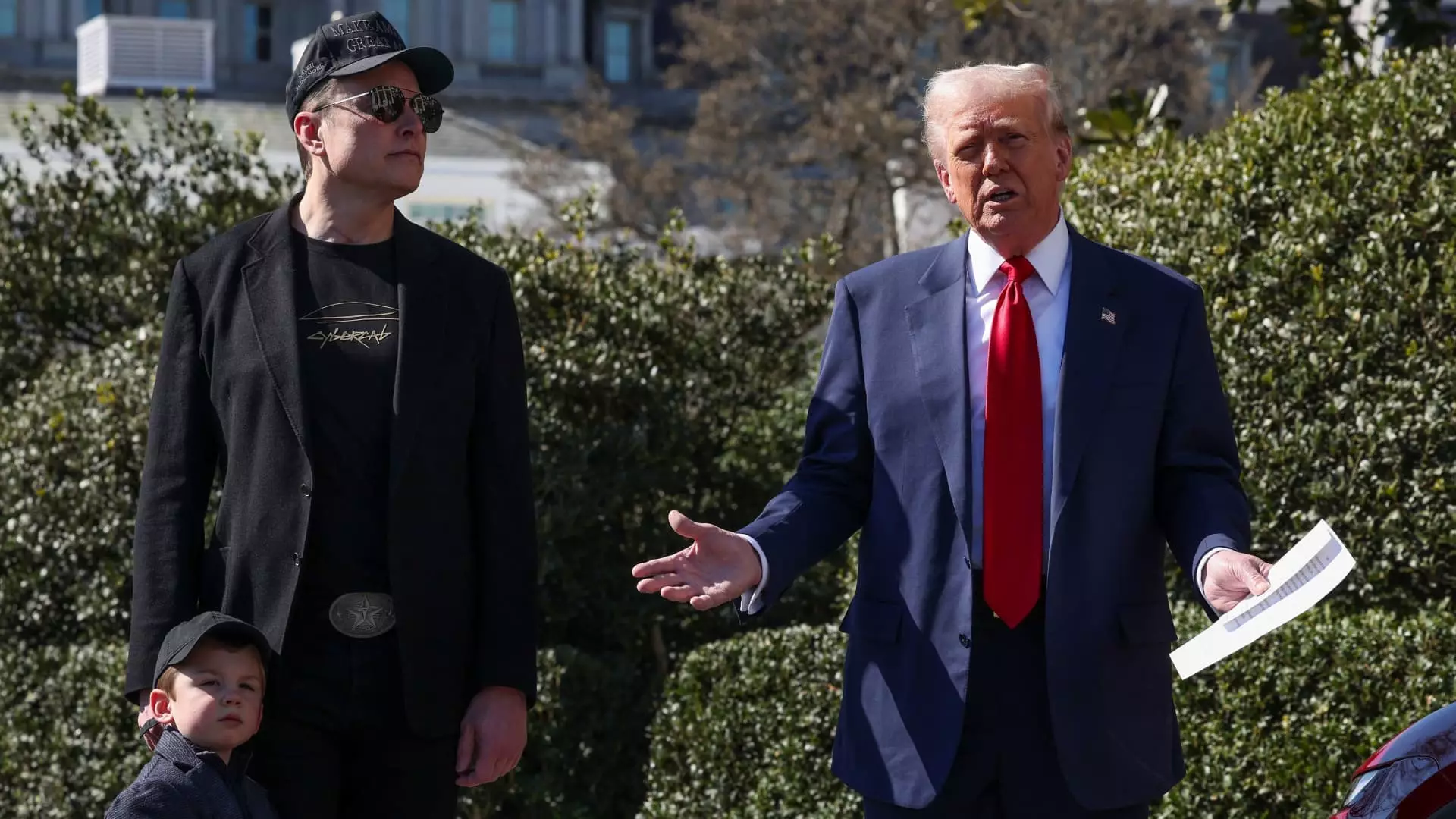In today’s ecosystem, the narrative often glorifies tech moguls like Elon Musk as visionary entrepreneurs revolutionizing industries and pushing the boundaries of innovation. However, a closer critical analysis reveals a disturbing reliance on government subsidies and contracts that threaten genuine market competition and economic sovereignty. Rather than being independent champions of progress, these titans often thrive on the back of taxpayer-funded initiatives that distort free enterprise. When politicians like Donald Trump criticize or threaten to cut funding, it exposes the fragile foundation of these supposed success stories and raises essential questions about fairness and fairness in the market. It becomes painfully obvious that the image of the tech billionaire innovator may conceal a dependency on government largesse that undermines the principles of capitalism and meritocracy.
The Risk of Entrenchment and Political Manipulation
Government contracts and subsidies often come with strings attached. For companies like SpaceX and Tesla, financial support from federal agencies is not merely a boost but a gateway to influence and political leverage. Musk’s companies have accumulated billions in contracts from NASA, the U.S. Air Force, and other agencies, shaping their strategic direction in ways that might prioritize political considerations over pure innovation or consumer benefit. This undue influence can entrench corporations beyond the natural limits of market competition, giving them an unfair advantage over smaller competitors who lack such political backing. Moreover, when administrations shift policies—and with them, subsidies—these companies become vulnerable to political whims, risking their stability based on partisan decisions instead of market forces.
The Hidden Cost of Regulatory Credits and Federal Incentives
Federal and state incentives, such as environmental credits, deeply distort the competitive landscape. Tesla’s substantial revenues from selling “automotive regulatory credits” illustrate how government policies can artificially inflate company earnings, often at the expense of consumer choice or genuine innovation. These credits are not products of market demand but are created through regulatory mandates that press automakers to produce cleaner vehicles—mandates Tesla can exploit profitably due to its early investments in electric vehicle technology. While laudable in intent, these credits distort the fair valuation of technological advancement and create an uneven playing field where compliance costs are subsidized by taxpayers. Heavy reliance on such incentives reduces innovation to a game of regulatory arbitrage rather than a true market-driven race.
The Double-Edged Sword of Public Support and National Security
Support from government agencies like the Department of Defense or NASA grants Musk’s companies significant strategic advantages that are often framed as national security benefits. However, this close relationship raises concerns about security, transparency, and accountability. When federal contracts become a political commodity—targets for cuts or increases depending on administration priorities—the stability of these high-stakes programs becomes uncertain. This precarious relationship jeopardizes taxpayers’ investments and shifts focus from pure technological advancements to political bargaining. For a nation that claims to value innovation and competitiveness, becoming overly dependent on government contracts risks undermining those very virtues in the long term.
The Real Cost to Taxpayers and Free Markets
While supporters argue that subsidies and contracts are necessary to boost innovation, the reality is that they often serve as annual welfare payments to well-established corporations. Musk’s companies, by capitalizing on federal support, avoid the full risks associated with market competition and consumer preferences. This results in a misallocation of public funds that could otherwise be used to foster smaller startups, invest in critical infrastructure, or reduce taxes for ordinary Americans. The ongoing reliance on taxpayer dollars allows these giants to dominate markets with an unfair advantage, ultimately impeding the emergence of truly breaking-edge competitors and diminishing the dynamism of free enterprise.
As policymakers, taxpayers, and fellow entrepreneurs, we must critically evaluate the true value and consequences of government support for corporate giants like Elon Musk. While some level of partnership may be justified for strategic, security, or environmental goals, it should not serve as a blank check for monopolistic entrenchment. Instead, a more responsible approach involves tightening oversight, reducing dependence on taxpayer-funded subsidies, and fostering an environment where innovation arises from genuine market competition—not political or regulatory arbitrage. Only then can the nation ensure that its technological and economic future is shaped by merit rather than the whims of government favoritism.

